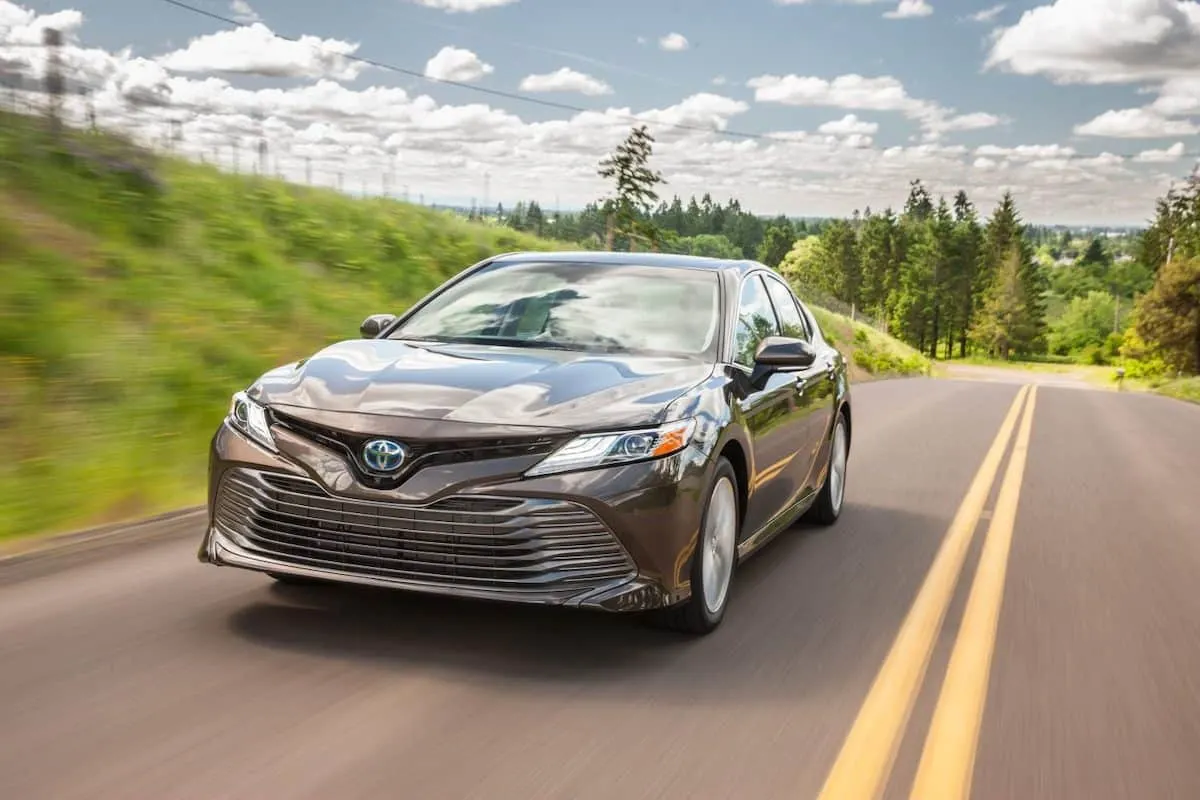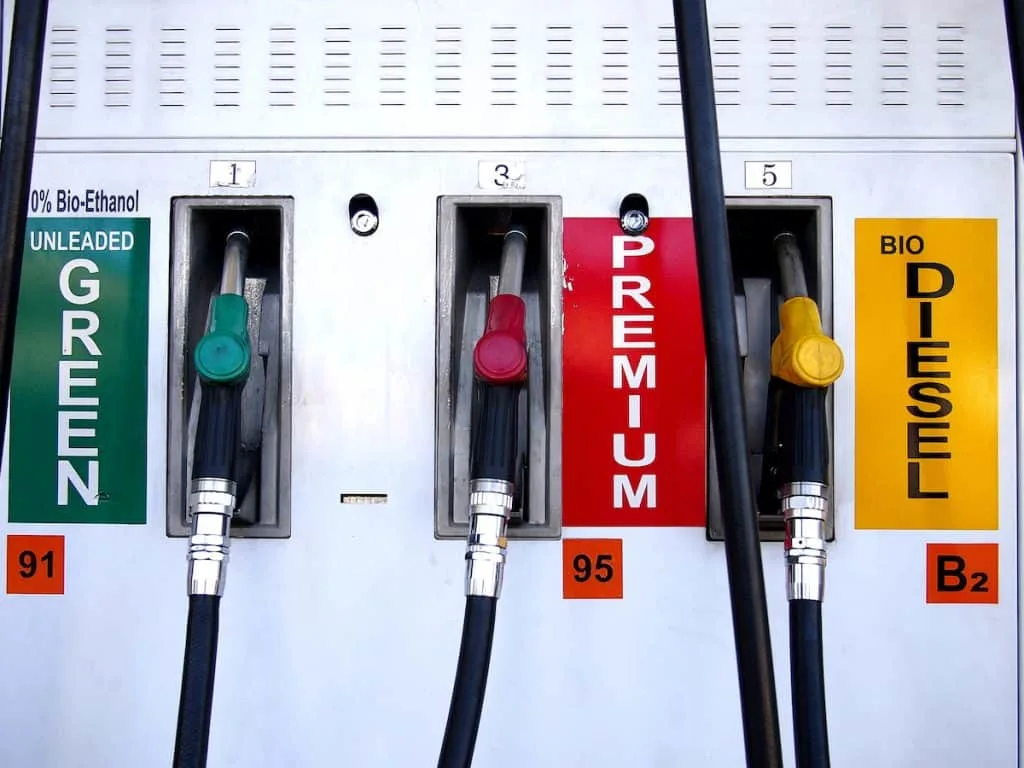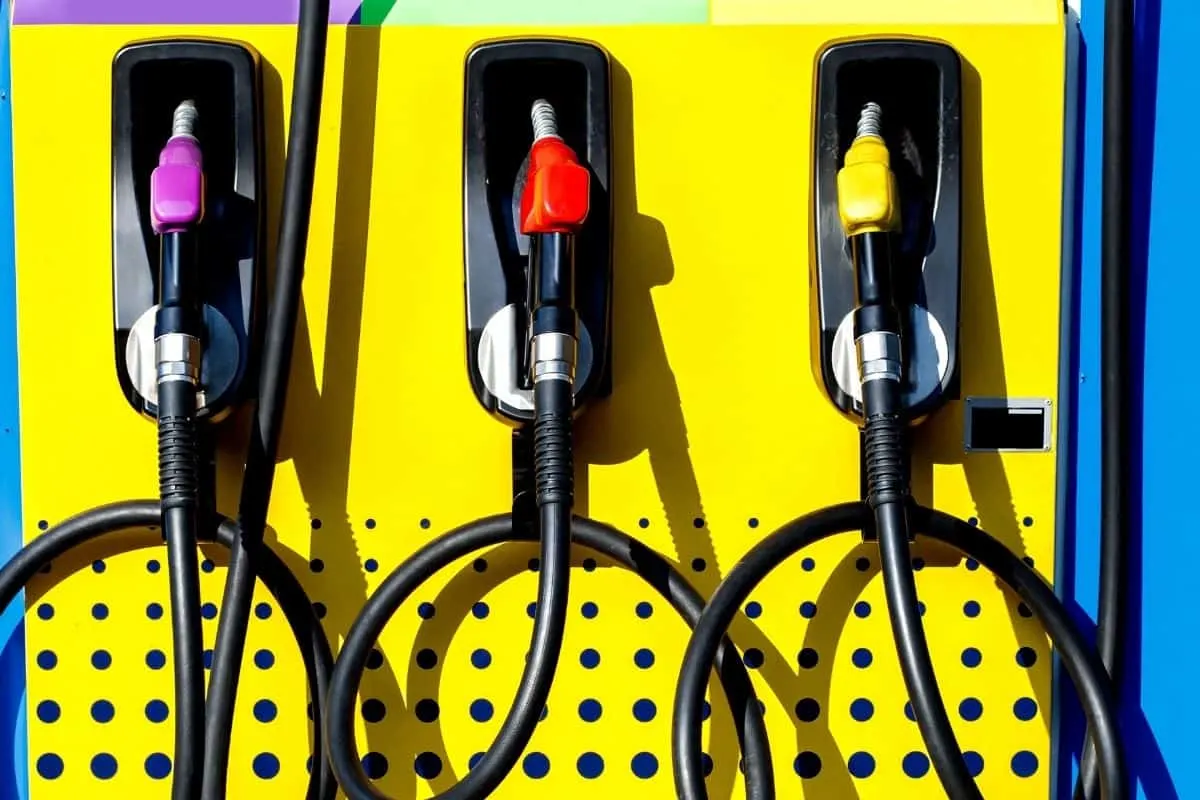Are you contemplating mixing premium and regular gas in your car? This decision isn’t just about cost; it’s about understanding the impact on your vehicle’s performance and longevity!
While mixing premium gas with regular gas is not recommended, it will normally not have much of an impact on your vehicle’s overall performance. However, if your car is a high-performance or premium vehicle that uses high-octane fuel, you may notice a decrease in engine performance or a series of sounds that are not normal.
In this article, we unravel the myths and facts surrounding the mixing of different gas types, providing you with essential insights to make an informed choice. Discover the potential effects on your engine and whether this practice can save you money or lead to costly repairs.
Table of Contents
Mixing Premium Gas With Regular Gas
Premium gas is a higher octane fuel and is considered grade 91, while regular gas is a much lower octane at grade 87. Mixing the two will create a grade of 89, which gives you a mid-grade fuel if added in equal parts.
A lower octane for premium cars will result in reduced performance, but shouldn’t cause any lasting effects.
If you find yourself at a gas station that is sold out of premium gas, but your vehicle requires premium gas, the best option would be to add a gallon or two of regular gas so you can travel down the road to another gas station that may have premium available.
Once you reach this next station, fill up your vehicle with the higher octane premium fuel as you would normally. The gallon or two of regular fuel you added previously will not cause problems being mixed with the new addition of premium fuel.
You can also find octane boosters at many gas stations and roadside convenience stores. These small bottles are great for improving your premium vehicle’s engine performance even if you have to add in the lower octane regular fuel.

What Happens When You Mix Premium with Regular Gas in a Regular Gas Vehicle?
If your vehicle normally uses regular gas, but you accidentally add premium gas into the gas tank, don’t worry. In most cases, using premium gas in a regular gas vehicle won’t provide any benefits or cause any problems.
Here are a few other things you need to know about what to expect when you add premium gas to a regular car.
1. There May Be No Extra Benefits if the Car Doesn’t Need Premium Gas
According to the Federal Trade Commission, using gasoline with a higher octane rating than the recommended one often brings zero benefits.
The first thing you will probably notice is filling up your vehicle with premium gas when it could have used regular gas will cost you a considerable amount more in money. You won’t notice any improved engine performance, nor will it perform faster.
However, there are some occasions where mixing premium gas and regular gas equally can give you a mid range blend that is able to improve your mileage. It has also been shown to improve your engine’s performance by a small amount.
2. Premium Gas and Regular Gas Have Varying Octane Ratings
While some states classify gasoline as premium when the octane rating is 92, some do so with only 90.
Most gas stations stock three grades of octane:
- Regular grade: 87 octanes
- Mid-grade: 89 octanes
- Premium grade: 91-93 octanes
Therefore, you may find the premium gas you’ve refilled your car with isn’t truly a high-octane fuel.
In the past, vehicles that required a higher octane fuel would start making a lot of noise if you added a lower octane fuel instead. Normally, you would hear knocking sounds from the engine before you even left the gas station parking lot.
Luckily, today’s vehicles make use of an ECU, or engine control unit. It will automatically adjust your engine’s performance to work with the lower octane fuel. While this might be fine for one or two fill-ups at the pump, you won’t want to make a habit of this.
Octane Needs of Certain Vehicles
Most gas stations will have three different fuel types: regular, mid grade, and premium. Each of these fuel types have a different octane content.
Regular gasoline will have around 87 octane, mid grade will have 89, and premium will have anywhere from 91 to 93 depending on the location.
Most states in the USA will consider a high octane fuel to be anything above 90, so if your vehicle requires a high octane fuel, you will need to use premium instead of regular or mid grade to get the best performance.
Turbochargers or vehicles with heavy engines will normally require premium gas. These vehicles make use of high compression ratios in their engines, and they need high octane fuel to perform.
If you add a low octane fuel to a turbocharger, you will most likely notice some sounds coming from the engine or a reduction in overall engine performance.

How Does Premium Differ from Regular Gas?
To understand how premium gas differs from regular gas, you need to understand the octane rating. The purpose of octane in fuel is to improve the combustion inside an engine.
Higher octane fuels are better for high-performance vehicles that have a fast rate of combustion in the engine. Using a high octane fuel in these higher-performance cars will ensure mistimed combustion is kept to a minimum.
Premium has a higher-octane rating than regular gas. It ranges from 91 to 93, depending on where you live.
In fact, there are some places where octane levels in premium exceed a rating of 93. On the other hand, regular gas has an octane level of 87.
The octane rating of gasoline indicates when mistimed combustion is likely to occur. A higher-octane rating means that the chances of combustion occurring at the wrong time (mistimed combustion) are slim.
Gasoline with higher octane rating is ideal for preventing engine knock, which perhaps would explain why sometimes, people tended to use premium in regular gas vehicles.
Occasional lower-level pings are typically harmless to your vehicle. However, repetitive engine knocking accelerates wear and tear, causing damage to your engine.

Frequently Asked Questions (FAQs)
Can You Mix Regular and Premium Gas at the Pump?
While you can in an emergency, it is not recommended. If your vehicle fuel cap and user manual recommend premium fuel, you should always use premium fuel. Adding the wrong fuel can cause the engine to have reduced performance and make strange knocking sounds when running.
How Do I Know the Type of Gas to Use?
The fuel type for your vehicle will depend on the make, model, and year of that vehicle. It will normally be mentioned in your user manual, or printed in easy to read text on the gas cap itself. You may also notice the word “premium” on the dash near your low fuel indicator on some models as well.
Do Turbocharged Cars Need Premium Fuel?
In most cases, yes. Turbocharged cars may still run on regular fuel if you have no other option, the engine performance will be poor. You should always keep your turbocharged vehicle filled with premium fuel only.
Can You Mix 87 and 89 Gas?
This would be a mixture of regular and mid-grade, and in most cases mixing the two fuels is perfectly fine for a vehicle that normally runs on regular gas. The octane level of the two fuels will average out, so you will be using an 88 octane gas.
Is Premium Gas Better?
While premium gas may have a higher octane rating and can improve performance in certain vehicles, such as high-performance engines or those with turbochargers, most standard vehicles do not require it.
In fact, using premium gasoline in a vehicle that does not require it can be an unnecessary expense and provide no additional benefits. To learn more, take a look at my full article on is premium gas better.
Final Thoughts on Mixing Premium and Regular Gas
Mixing premium and regular gas in any car is generally not advisable. If your car is a premium, use premium fuel, and if it’s a regular, use regular gas.
Mixing the two adds no benefits to a car that is supposed to use regular gas, and for a vehicle that should run on premium, it may not run as smoothly. Unless under unavoidable circumstances, stick to the octane level of your car.
Before you can use premium fuel in your regular car, consult automobile experts first. However, let the common myth that premium fuel on regular cars leads to better handling and car performance not misguide you.
What is essential for any vehicle is proper maintenance and regular checkups. With the two, your car’s performance will always be top-notch.
Below are some frequently asked questions about mixing premium and regular gas.
If you found this article helpful, make sure to take a look at these additional gas-related resources!
